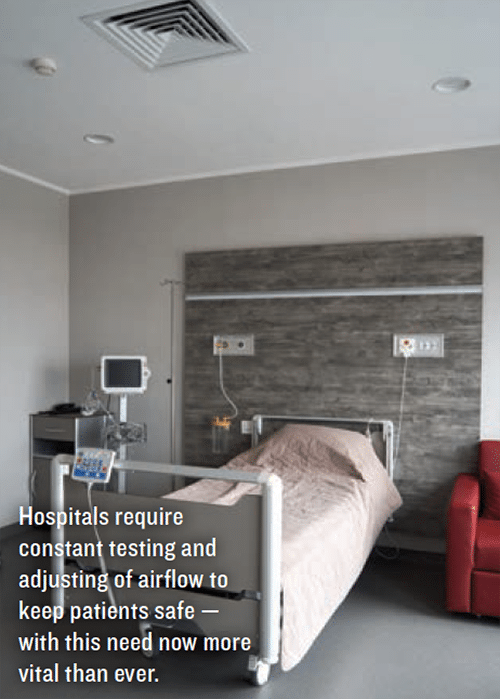The Department of Veterans Affairs (VA) added the Testing, Adjusting and Balancing Bureau (TABB) as a third certification body for certifying personnel and contractors who perform testing, adjusting and balancing (TAB) on heating, ventilation and air conditioning (HVAC); water balancing; and sound and vibration equipment testing. The addition was effective Nov. 1, 2021.
With endorsements and acceptance/ inclusion from the VA, the U.S. Army Corps of Engineers, the Sheet Metal and Air Conditioning Contractors’ National Association (SMACNA) and construction companies nationwide, TABB is the professional’s choice for the testing, adjusting and balancing of HVAC systems.
“Certification provides assurance to building owners that a particular contractor will meet a specified level of quality. The need for highly skilled technicians has increased with the complexity of HVAC systems.”
– From a 2020 white paper released the University of California, Davis, Western Cooling Efficiency Center (WCEC)
The decision was based, in part, on a white paper released in 2020 by the University of California, Davis, Western Cooling Efficiency Center (WCEC) — “Testing, Adjusting and Balancing HVAC Systems: An Overview of Certification Agencies” — which examined the benefits of using certified contractors and favorably positioned TABB as the first and only personnel-certifying body accredited by the American National Standards Institute (ANSI) in this field. The paper also stated TABB conforms to ISO/IEC 17024, an internationally recognized standard for personnel certification bodies.
TABB has developed certifications to serve as verification that technicians and supervisors have the knowledge and experience needed to complete the job tasks at hand. A well-balanced HVAC system isn’t just efficient; it’s also safer due to enhanced ventilation rates and overall indoor air quality.
“Certification provides assurance to building owners that a particular contractor will meet a specified level of quality,” the white paper explained. “The need for highly skilled technicians has increased with the complexity of HVAC systems.”
TABB is the first program to gain ANSI accreditation for certification in the testing, adjusting and balancing industry. Certification is a statement that the technician, supervisor and contractor demonstrate the highest level of professional expertise
